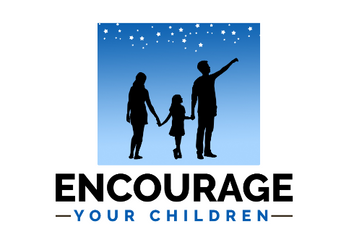
Listen to the article:

Teaching kids about responsibility and everything it entails is one of the most important lessons of all. It is a life skill that will affect them throughout life and requires ongoing practice and growth. Learning about the various responsibilities at home, in their community, at school, and at work, will essentially change as they grow, but the foundations of this life skill will always require having the ability to recognize a need, having the desire to accept it as an obligation, making a commitment to take care of it, and following through to completion.
When hands-on activities are incorporated into teaching kids the importance of responsibility, they are given the chance to learn in real-time situations that they’ll remember for a lifetime.
#1 Keeping A Behavior Journal: Journaling is useful for various reasons and having kids “own up” to behaviors by writing them down and reflecting on them can create an eye-opening experience and a chance for them to learn from their own actions. Have your kids pick out and decorate a notebook they’ll use for this activity. Every 3 to 4 days have them write down events that occurred and how they dealt with the situations. Review the journal with them and provide encouragement and suggestions when necessary.
#2 Helpful Hands: Teaching kids about the meaning of helping not only helps them learn about responsibility, but it also teaches them the importance of thinking of others. Work with them to come up with chores or tasks they can do that will help others and is different than current responsibilities. Once a few items have been selected, have the children create a coupon book. The coupons should be handed out to family members or friends who would benefit from assistance with the task. After the tasks are completed, have a conversation to find out what transpired in the exchange. This teaches the significance of making a promise and following through on it in a timely manner.
#3 Timeliness: Understanding how to tell time and managing time is essential to success. Encourage your kids to pay attention to what time it is. Have them write down the times of scheduled responsibilities and tasks. For example, what time do they need to get out of bed to arrive to school on time, or what time is soccer practice. Ask them to get up on their own by an alarm clock, and let you know when it’s time to leave for school to avoid being late.
#4 Community Responsibility: Teaching kids about the importance about community awareness can involve volunteering as a family to clean up a park, donate to food drives, or help elderly people. Introducing them to these things nurtures the desire to help others and to take pride in the community they live in.
Helping kids practice and learn the different facets of responsibilities will take time and commitment and will likely be an ongoing process. Seek out opportunities in daily activities to use real life situations as teaching moments. The more a child can associate a lesson with reality, the easier it will be to comprehend and apply to other situations, as they grow older. Raising a responsible child is a rewarding endeavor for parents.
Thought Starters:
- Integrating Journaling as a Tool for Self-Reflection: Consider how you can introduce the practice of keeping a behavior journal to your child. Reflect on how this activity can help them take ownership of their actions and learn from their experiences, fostering responsibility and self-awareness.
- Developing a Sense of Helping Others Through 'Helpful Hands' Activities: Think about chores or tasks that your child can do to help others, separate from their usual responsibilities. Ponder how creating a coupon book for these tasks can teach your child the value of making commitments to others and following through on them.
- Emphasizing the Importance of Timeliness and Time Management: Contemplate ways to encourage your child to pay attention to time and manage their schedule effectively. Consider activities like setting their own alarm clock or keeping track of their own schedule for school or extracurricular activities to foster a sense of responsibility.
- Fostering Community Responsibility Through Volunteering: Reflect on opportunities for your family to engage in community service activities. Think about how volunteering together can instill a sense of pride and responsibility in your child toward their community and the importance of helping others.
- Seeking Daily Opportunities to Teach Responsibility: Consider how everyday activities and situations can be used as teaching moments to instill responsibility in your child. Reflect on how associating lessons with real-life situations can make them more comprehensible and applicable as your child grows.
Suggested Questions To Ask Your Child:
- Can you tell me about something you wrote in your behavior journal today?
This question encourages the child to discuss their entries in the behavior journal, promoting reflection on their actions and decisions. It aligns with the article's suggestion of using a journal to help children understand and learn from their behaviors.
- What is one task you'd like to add to your Helpful Hands coupon book for someone else?
Asking about tasks for the Helpful Hands coupon book encourages the child to think of ways they can help others. This question supports the article’s idea of teaching responsibility through helping and committing to tasks that benefit others.
- How did you manage your time today for [specific activity or responsibility]?
This question focuses on time management and punctuality, key aspects of responsibility mentioned in the article. It encourages the child to think about how they are managing their own time and responsibilities.
- What did you enjoy most about our community service activity?
This question relates to the article's suggestion of involving children in community service. It encourages the child to reflect on the experience and understand the importance of community responsibility.
- If you had to do [a particular task from their behavior journal or Helpful Hands activity] again, what would you do differently?
Asking this question promotes critical thinking about past actions and decisions. It aligns with the article’s focus on using real-life situations and activities to teach responsibility, encouraging the child to think about improvement and learning from experiences.



